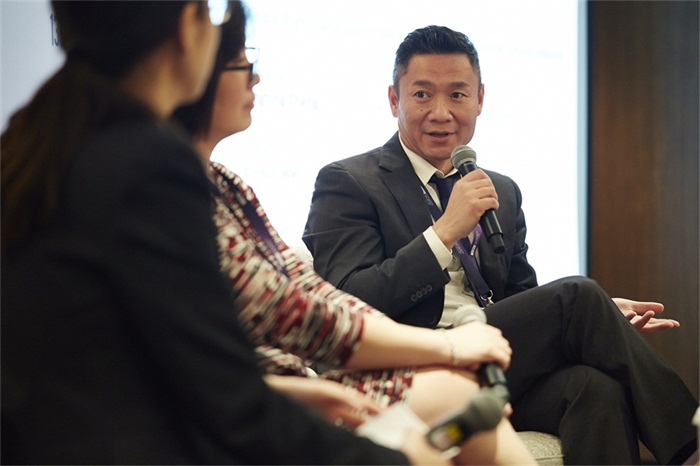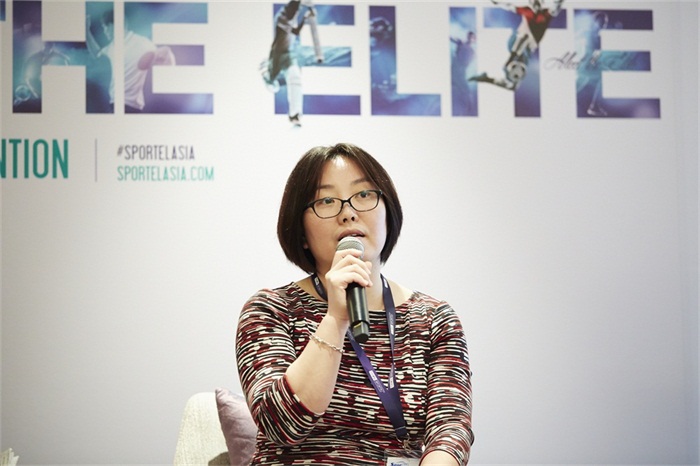The Chinese sports market has entered an era of rapid development in recent years. But what happened to the landscape of Chinese sports media rights? How do sports media companies adjust their roles to adapt to the ever-changing market? How can foreign companies learn from their Chinese equivalents to smoothly enter the Chinese sports market?
With those questions in mind, Tingting Zhang, International Business Manager of Yutang Sports moderated a panel discussion entitled “Media rights and sports media landscape in the Chinese Sports industry” at the SPORTELASIA on March 13. As media partner and sponsor of the 2018 SPORTELAsia (13-15 March), we invited Senior Vice President of Sina and General Manager of Sina Sports Arthur WEI and Alisports Vice President Celine SHI to share their insights about Chinese sports market.
Arthur WEI:The price for media rights should come down to rational levels in 2 or 3 years
In the year 2015, China experienced skyrocketing prices for media rights of major sports properties. China Sports Media agreed to acquire the broadcasting rights to the Chinese Super League (CSL) for a record 8 billion yuan in a five-year deal and PPTV paid 250 million euros for a 5-year La Liga deal. Then in 2016, Tencent signed a 4-year deal with the NBA at a cost of 30 million US dollars, while iQIYI signed an agreement to become the PGA TOUR’s Official Digital Streaming Portal in China from 2016 through 2020.
The landscape of sports media companies has changed with the inflation of media rights deals. Sina Sports celebrates its 20th anniversary this year and is a witness to this revolution. As Mr Wei told us during the panel discussion, before 2015, Sina Sports had almost everything, including domestic and overseas sports properties like the NBA, the CBA, the EPL and the CSL. Take the CSL for example, with the price of about 1.6 billion yuan per year, the change makes it a 2000% increase for the 80 million yuan Sina Sports paid in 2015.
“If you ever review the IP rights price, I would say that before 2015, it was too low and undervalued, everything from the NBA to the EPL, to the CSL,” Wei said. “But after that, overnight, the prices jumped by 2000% or 200 times. That is irrational. I think we suffered and somebody enjoyed the hype for the IP rights. So then what is the best price? If you compare with the other countries or nations who had a similar development situation with China, you will probably find a price.”
In Mr Wei’s opinion, as of now, the price for media rights are dropping all across the industry, from the EPL to the others. He predicted that for another 2 or 3 years, the prices will begin to stabilize, and then it will start to grow after that.
Celine SHI:Self-owned events are an important option
According to Mr Wei, the change in value started in 2014, when the government removed its ban on commercial games and leagues. Chinese media companies then started to run their own sports properties, instead of only selling media rights.
Against such a background, Alisports, founded in September 2015, didn’t pay much attention to buy media rights in the next several years but focused on two major business pillars, eSports and campus sports. For instance, Alisports’ eSports event, World Electronic Sports Games (WESG), is continuing to expand all over the world, thanks to their promotion in Europe, North America, and Asia.
The sports arm of Alibaba has started to engage with the media business since their parent company took over Youku Tudou in a 4.67-billion-dollar deal in 2016. Additionally, Alibaba’s deals with the Pac-12 Network, the NFL and the IOC have helped Alisports to grow in popularity among younger customers. More importantly, digital media platforms like Youku, Dayu and UC, which provide UGC and PGC for users, will provide access to more people who are interested in sports content consumption.
Similarly, Sina Sports established the FIBA-endorsed 3X3 Golden League basketball tournament, which currently has 65,000 participants competing in 62 cities. In January 2018, the sports company collaborated with Mediapro Asia to promote the basketball league into other markets outside China. As a sports media giant, Sina Sports will also utilize channels like Sina Weibo, Sina.com, CCTV 5, Guangdong Sports, NetEase, Youku, iQIYI and FOX to grow the commercial value of their self-owned events.
Conclusion
The launch of File No. 46 in 2014 was a landmark for the Chinese sports industry, as sports-related industries witnessed an era of rapid development. While traditional TV networks and digital media companies are competing for sports media rights, more firms like Alisports and Sina Sports will pave a new path for the Chinese sports market.
Video of the speakers answering the question: what do you think about the high sports media rights fees in the Chinese market?
Proofread by William Logsdon



